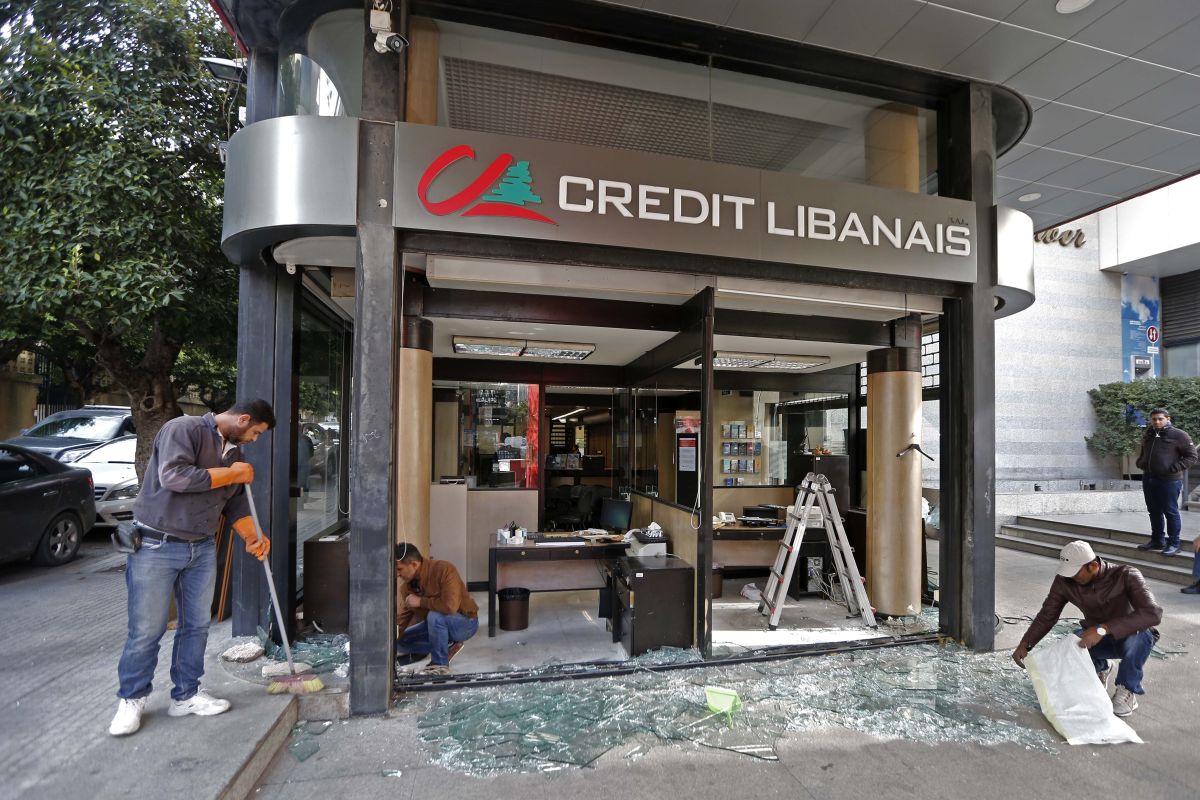Lebanese President expresses concern over Israel’s full withdrawal
Lebanese President Joseph Aoun on Monday voiced concerns over whether Israel would completely withdraw from southern Lebanon on Tuesday.
Lebanon has been swept by a wave of mostly peaceful protests aimed at the country’s elite that prompted Prime Minister Saad al-Hariri to resign on Oct. 29, pushing the country deeper into economic crisis.

- A bank's windows are smashed by protesters in Beirut, Lebanon, on Jan. 15, 2020. (Photo: IANS)
At least 35 people were injured on Wednesday after clashes broke out between protesters and the army in the Lebanese capital of Beirut.
Secretary-General of Lebanese Red Cross Georges Kettaneh said that the injured included both army members and protesters and they were transferred to hospitals for treatment.
Advertisement
Lebanon has been swept by a wave of mostly peaceful protests aimed at the country’s elite that prompted Prime Minister Saad al-Hariri to resign on Oct. 29, pushing the country deeper into economic crisis.
Advertisement
On Tuesday night, riots broke out in Beirut’s Hamra area, with bank facades smashed and stones pelted at security forces who fired back with tear gas.
The unrest continued on Wednesday when anti-government protesters hurled stones and fireworks at security forces outside a Beirut police station where some demonstrators were being detained from the night before.
Last year, hundreds of protesters took to the street in Lebanon and asked the banks to allow them to withdraw more money.
Anti-government protesters, who largely blame the country’s dire economy on corrupt politicians, say the limits are illegal and have turned their fury against bank officials and the financial sector.
Over recent weeks, the local currency has taken a nosedive, losing more than 30% of its value after over 20 years of being pegged to the dollar.
The economic slowdown and a drop in cash injections from Lebanese abroad reduced the central bank’s foreign currency reserves and led to a shortage in dollars for businesses and individuals.
The demonstrators said that they refused Diab’s appointment because it would empower corrupted political parties who were adopting the same old concept of arguing about shares in the government, which should not be the case amid the current pressing economic and financial challenges prevailing in the country.
In Washington, a State Department spokesperson said that US Undersecretary of State for Political Affairs David Hale had encouraged Lebanese leaders during his two-day visit last week “to put aside partisan interests and support formation of a government committed to and capable of undertaking meaningful, sustained reforms.”
Hale “reaffirmed America’s longstanding partnership and enduring commitment to a secure, stable, and prosperous Lebanon,” Morgan Ortagus said.
(With inputs from agency)
Advertisement